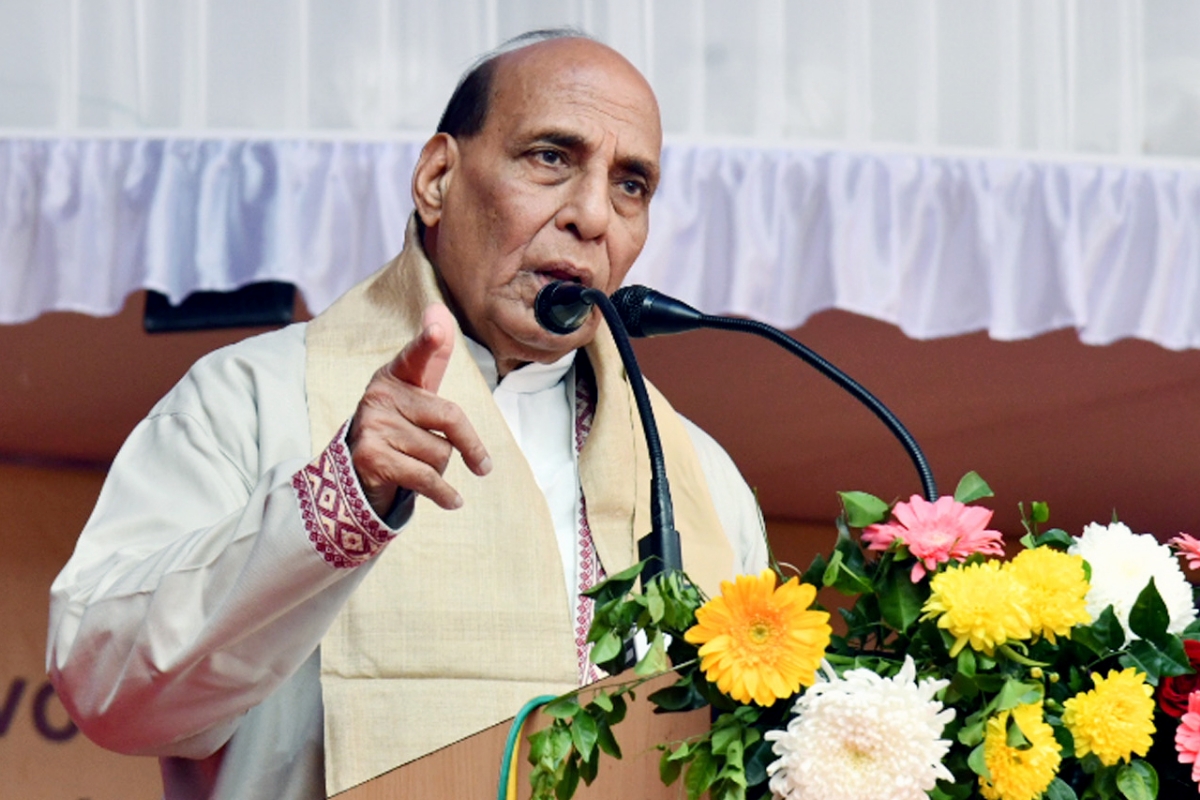Defence Minister Rajnath Singh on Wednesday welcomed investment and technology collaboration from the UK, and stated that India is ready with skilled human resource base, a robust pro-FDI and pro-business ecosystem, and a huge domestic market.
He made the remarks on the second and final day of his visit to the United Kingdom during an interaction with top UK defence industry leaders and CEOs at an event in Trinity House, London, the defence ministry announced here.
The UK-India Defence Industry CEOs roundtable, co-chaired by Singh with his UK counterpart Grant Shapps was attended by a large number of CEOs from the UK defence industry; UK MoD officials; Chair, UK India Business Council; and CII India representatives.
Advertisement
Some of the major companies represented were BAE Systems, GE Vernova, James Fisher Defence, Leonardo S.p.A., Martin Baker Aircraft Company Ltd, SAAB UK, Thales UK, Ultra-Maritime Rolls-Royce, ADS Group, and MBDA UK.
The meeting was also attended by UK Minister of State for Defence Procurement, James Cartildge. The roundtable included thematic discussions on strengthening the India-UK defence industrial relationship.
Singh said under the visionary leadership of Prime Minister Narendra Modi, India is surging ahead on the path of becoming a developed economy by 2047. The ambition is backed by a clear headed roadmap to chart the course, and is backed by the collective will-power of 1.4 billion Indians to stay the course.
Highlighting the importance of the India-UK ties, Singh said there is a symbiotic relationship between the two countries and the Government of India envisions an enriching partnership with UK to cooperate, co-create and co-innovate. “By synergising the strengths of our nations, we can do great things together,” he said.
Shapps agreed with the statement of Singh regarding the symbiotic relationship between India and the UK. Shapps stated that the ties transcend the normal buyer-seller relationship and is fundamentally a strategic partnership.
The industry leaders from the UK outlined their current and future plans for India. Aero-engines, electric propulsion, missiles, power-packs, and maritime systems were identified as some of the focus areas of joint work. The defence minister noted the positivity and enthusiasm of UK CEOs and business leaders on working in India and with the Indian companies.
On 9 January, Singh held a bilateral meeting with Shapps. Emphasis was on enhancing defence industrial cooperation between the two countries. The bilateral meeting was followed by the signing of two agreements between India and the UK — an MoU on conduct of bilateral international cadet exchange programme, and a Letter of Arrangement between the Defence Research and Development Organisation (DRDO) and UK’s Defence Science and Technology Laboratory (DSTL).
Singh also paid floral tributes to Mahatma Gandhi at his statue at Tavistock Square. He also visited the Ambedkar House in London and paid tributes to B R Ambedkar, the architect of the Indian Constitution.
The Ambedkar House was the home of Ambedkar, who lived there between 1921 and 1922 while he was pursuing a degree in Economics at London School of Economics, and a degree in law at Gray’s Inn.
The defence minister, while paying tributes to Ambedkar, noted in the visitor’s book message that it is a great experience to visit the memorial of the creator of venerable Constitution of India, the guiding light of the Indian Republic.
Singh also visited the Sri Swaminarayan temple at Neasden and paid his respects.
The Raksha Mantri was scheduled to meet UK PM Rishi Sunak, and UK Foreign Secretary (Secretary of State for Foreign, Commonwealth and Development Affairs) David Cameron, later.









